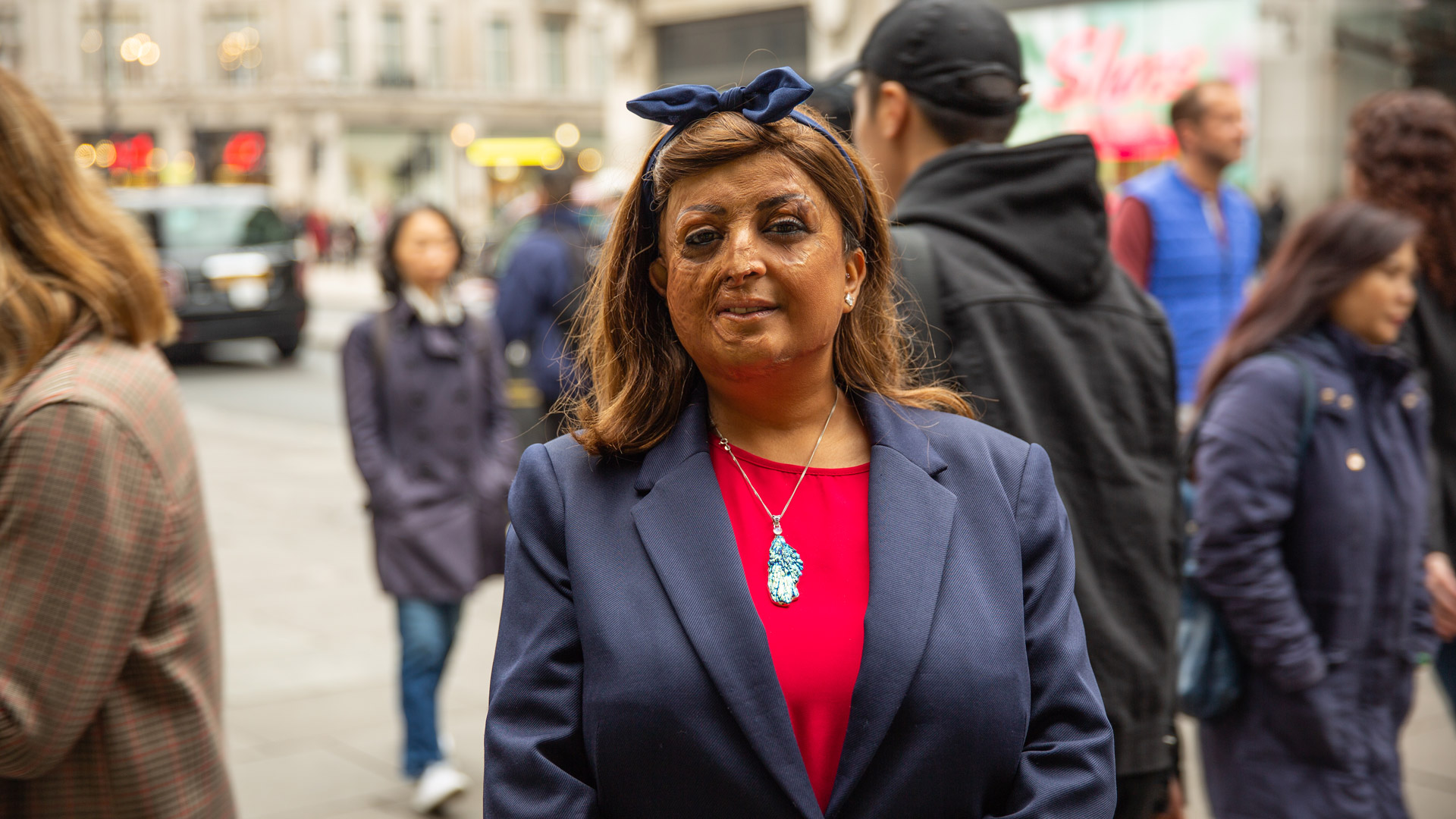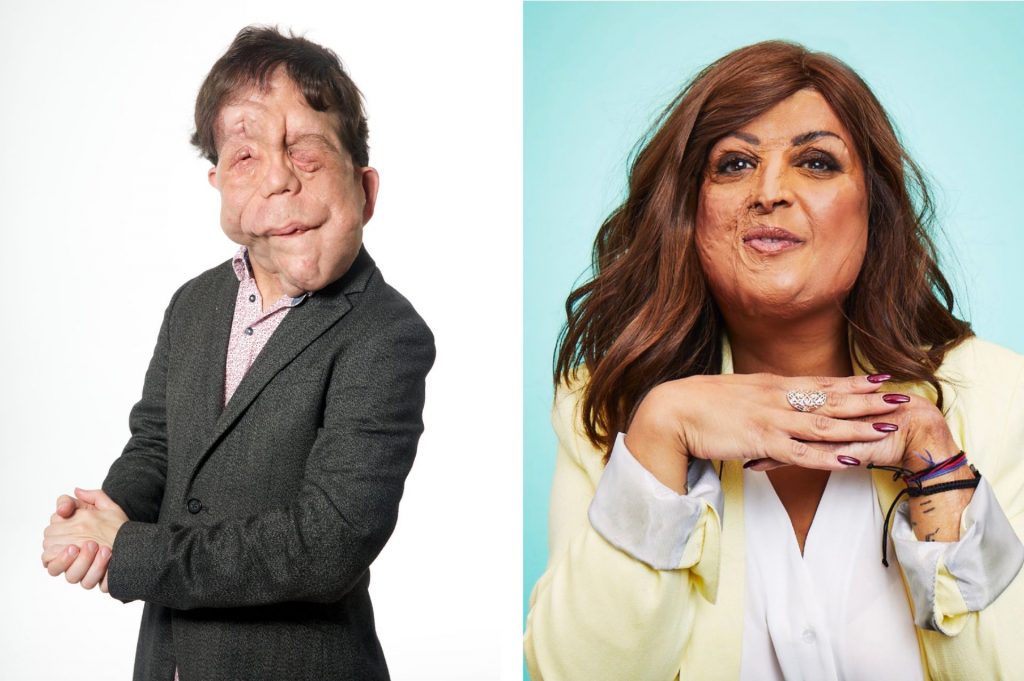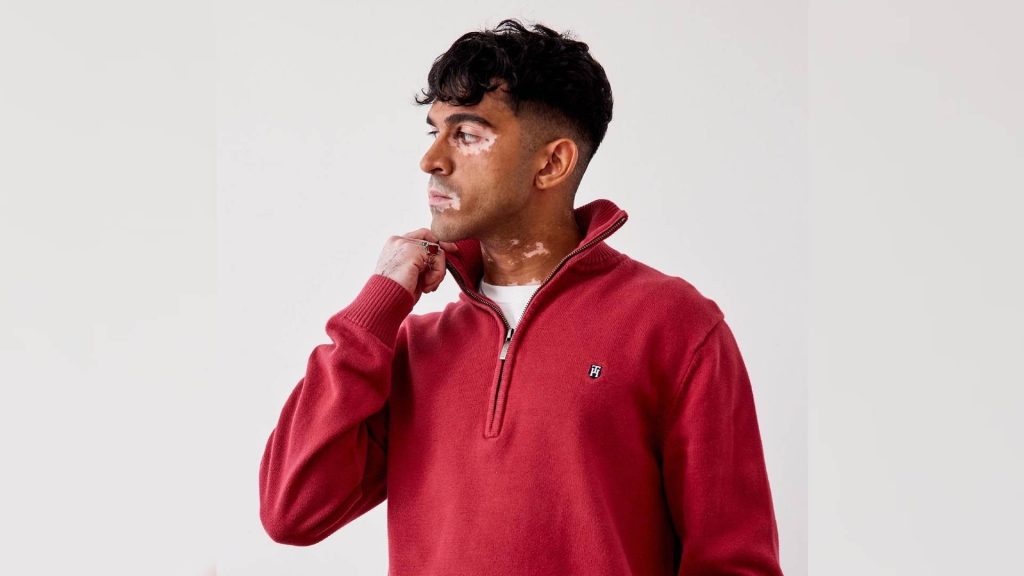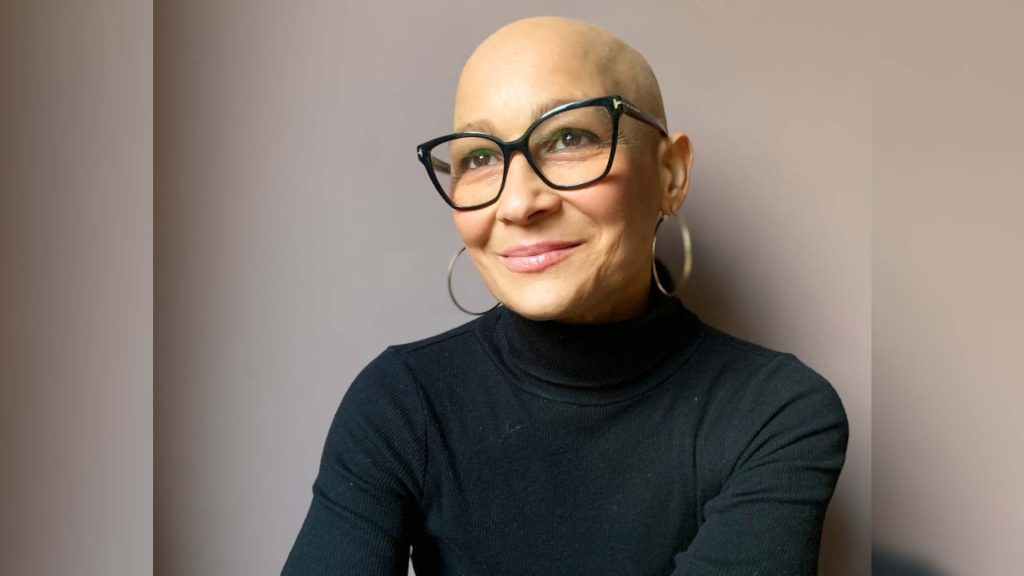Facts for the media
Key facts to inform your coverage of visible difference to help you ensure your reporting is sensitive, accurate and non-discriminatory.

Changing Faces can provide media spokespeople to discuss visible difference and disfigurement, including campaigners, ambassadors and staff-members.
Media interviews are available with Changing Faces campaigners and ambassadors, who can share their personal experiences of life with a visible difference or disfigurement. We can also arrange interviews with Changing Faces staff from across the charity.
Changing Faces is the UK’s leading charity for everyone who has a mark, scar or condition that makes them look different. Being different in a society where there is such pressure to look a certain way is tough.
For over 25 years we have been providing advice and support, challenging discrimination, and campaigning for a world that respects difference. We want a future where everyone with a visible difference on their face or body has the confidence, support and opportunity to lead the lives they want.
We know that real-life stories can bring news to life. Much of our campaigning work is led by our campaigners and ambassadors who have a visible difference and who can share their experiences to put a story into context.
You can also speak to our expert team who can provide a UK-wide picture of the experiences of people who have a visible difference as well as background on our latest research and campaigns.
Media interviews are available with Changing Faces campaigners and ambassadors, as well as with members of staff.
If you would like to speak to someone about our work or about an interview, please contact our media team:
Our ambassadors are experienced and passionate speakers who have been involved with Changing Faces for several years and have powerful stories to tell about their own experiences of living with a visible difference.
We’ve provided information below about two of our ambassadors – you can also see the full list of ambassadors on our dedicated page.
When Tulsi was 10 years old she was in a plane crash in which she lost her immediate family and sustained second- and third-degree burns to almost half of her face and body. For years Tulsi was bullied for how she looked which affected her mental health.
Having a disfigurement means never having a day off. I don’t get to take my scars off and forget about them. Every day when I leave my house I need to check in with myself to see how I am going to handle staring or comments people make. We need to get more awareness and have equality.
Today Tulsi is a passionate ambassador for Changing Faces, raising awareness about the impact of abuse and negative stereotypes. Tulsi is a key spokesperson for our hate crime campaign and has modelled for Avon as part of our corporate partnership work to improve representation.
Adam is an award-winning campaigner, actor and presenter. Adam was born with the genetic condition neurofibromatosis, which causes non-cancerous tumours to grow on nerve tissues.
He first became involved with Changing Faces as a child and is now a fantastic ambassador speaking out about important issues such as appearance-related hate crime, as well as guest hosting the Changing Faces podcast, Voices of Visible Difference.
It’s not always easy looking different in a world that is so focused on perfection. Growing up there were no positive role models of people with disfigurements in the media. So now I’m on a mission to be more visible. I speak out and share my experiences, because if it helps one more man, or woman, feel able to share how they’re feeling about their appearance, that’s a job well done.

Two of our ambassadors, Adam and Tulsi
Our campaigners, like Sultan and Zelda, come from across the UK. They are a diverse group with a range of experiences to share about living life with a visible difference. You can find out more about our volunteer campaigners on our dedicated page.

When Sultan was 12 years old, white patches began forming on his skin and he was found to have vitiligo. For a while, he struggled with his self-esteem, often being made to feel like he stood out when all he wanted was to fit in.
I cared too much about what people thought of me and ended up with a skewed vision of the world. I didn’t feel different, but I was made to feel different by others’ reactions.
“However, I came to realise that developing vitiligo at a young age was a blessing. It was part of me and I grew up understanding that I wouldn’t be who I am today without it. Eventually, I got to a point where I was oblivious to what others thought of me.
“Thanks to the confidence I found, I’ve been able to break down barriers in the modelling industry by championing vitiligo on the global stage. Now that I’m a campaigner for Changing Faces, I hope I can continue to use my platform to support others, not only with vitiligo but with any visible difference.”
Sultan wants to ensure that young people with visible differences don’t go through the same feelings of isolation that he did, getting involved in our #ThisIsMe campaign for Face Equality Week 2023.

Zelda developed alopecia in 2019. She has experienced the whole range of the autoimmune disorder, from alopecia areata, to totalis and universalis. Coping with the loss of identity this created was difficult.
“I’ve learnt so much about myself over the last few years. It’s not weak to ask for help. My experience is valid, it’s not just hair and it’s not vain to be upset that you look different. I’m happy to talk openly about my condition and explain that living with a visible difference can be challenging. I’ve learnt to be kinder to myself and that it’s okay to be angry if people comment or stare. I’ve also realised that even when you feel invincible, fear and doubt can catch you unawares at any time and that’s okay too.
I am so honoured to be a Changing Faces campaigner. Putting myself forward for the role made me realise just how far I’ve come on my self-acceptance journey. We should not have to apologise for who we are purely because we look different.
Zelda hopes to help other people with visible differences by sharing her story and campaigning for better representation across society.
Our Chief Executive is our main spokesperson for Changing Faces. Contact the media team using the details at the top of the page if you would like us to comment on something or would like to arrange an interview.
Heather Blake is Chief Executive at Changing Faces. Heather is passionate that Changing Faces listens carefully to those who we support, and that the voices and experiences of our community are at the heart of everything the charity does.
Before Changing Faces, Heather was Director of Support and Influencing at Prostate Cancer UK. In this role, she was responsible for leading their service delivery and work to ensure that men with prostate cancer have access to the best treatments and care.
Heather has held senior operational and strategic management roles in the NHS, including responsibility for community health services in Lambeth and Southwark as part of Guys & St Thomas’ NHS Foundation Trust. She is also a Trustee and Chair of the Patient Services Committee at Royal Trinity Hospice, Clapham.
Key facts to inform your coverage of visible difference to help you ensure your reporting is sensitive, accurate and non-discriminatory.
Guidance for journalists and reporters on how to talk about visible difference and disfigurement in the media, including contact details for our media team.